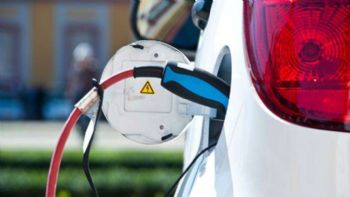
Abingdon-based Nexeon (
www.nexeon.co.uk) and its partners have been awarded £7 million of Government funding for a project to develop significantly better materials for Li-ion batteries — an essential step towards achieving electric vehicles (EVs) with a range of 400 miles and above.
The SUNRISE project (Synthomer, UCL & Nexeon’s Rapid Improvement in the Storage of Energy) will develop better battery materials based on silicon as a replacement for carbon in the cell anode, and it will optimise cell designs for automotive application.
Innovate UK will fund most of the project, as part of the Faraday Battery Challenge. SUNRISE will also enhance the UK’s position as a centre of excellence for battery development, and it will support the materials manufacturing supply chain in the UK.
Nexeon will lead the silicon material development and scale-up stages of the project, while polymer specialist Synthomer will lead the development of a next-generation polymer binder optimised to work with silicon — and ensure anode/binder cohesion during a lifetime of charges.
Nexeon and UCL (University College London) will jointly lead the work on material characterisation and cell performance.
Silicon is currently being adopted as a partial replacement for carbon in battery anodes, typically up to the level of 10% replacement, but problems caused by expansion when the cells are charged and discharged remain a hurdle.
Project SUNRISE addresses the silicon expansion and binder system issues, and allows more silicon to be used, further increasing the energy density that can be achieved in the cell.
Innovative silicon anode material with a polymer binder represents a ‘drop-in’ replacement for current graphite anode systems. Lower-cost and better-performing power sources will reduce the time required for EVs to achieve mass adoption.
Nexeon CEO Scott Brown said: “The biggest problems facing EVs — range anxiety, cost, charge time and charging station availability — are almost all related to battery limitations.
“Silicon anodes are now well established on the technology ‘road maps’ of major automotive OEMs and cell makers, and Nexeon has received support from UK and global OEMs, several of whom will be involved in this project.”
The Faraday Battery Challenge is an investment of £246 million over four years to help UK businesses seize the opportunities presented by the transition to a low-carbon economy, to ensure that the UK leads the world in the design, development and manufacture of batteries for electric vehicles.
Success in creating a viable battery supply chain will lead to the creation of hundreds of UK jobs, according to Innovate UK.